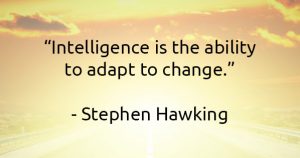Sep 12, 2018 Mobility 2020
By Ben Heller
Changes are happening to the mobility industry faster than ever before. The past five years have seen significant growth in new technology companies, but they haven't yet penetrated the market to the satisfaction of their owners.
 The mobility industry has by and large been resilient against the tech disrupters because our ecosystem is large and complex. But we’re starting to see that each silo within mobility is being disrupted with technology, making solutions better, faster, and less expensive. It’s only a matter of time until technology platforms can tie all of this together and become serious challengers to the incumbents.
The mobility industry has by and large been resilient against the tech disrupters because our ecosystem is large and complex. But we’re starting to see that each silo within mobility is being disrupted with technology, making solutions better, faster, and less expensive. It’s only a matter of time until technology platforms can tie all of this together and become serious challengers to the incumbents.
Technology is driving improvement - inside and out
On the flip side, we’re also seeing incumbents improve. And if they are able to adapt and improve enough, they may be able to win. In the near term, this may be because of customer inertia, higher levels of service, and understanding of the complex world of mobility. In the long term, though, incumbents will only win if they can adapt and make major changes to their business models.
With the changes to tax policy this past year, lump sums are becoming more relevant and benefits are going down. But large relocation packages aren’t entirely going away, and this makes moving a corporation’s entire program to an innovative solution a huge challenge. Corporate mobility departments continue to need a comprehensive suite of services, and that isn’t something a startup technology firm can do, yet. So while mobility is gradually moving from a complicated set of services to a streamlined solution, that transition gives the incumbents a chance to adapt towards a service model that is managed by the individual with access to a curated digital experience.
If you build it right, they will come
Let’s look at the Relocation Management Companies. How many different RMCs right now are building or have built technology platforms to simplify and automate the “lump sum” and “renter” transferee experience? A lot. Some are doing better than others, but for the most part, the differences are subtle in capabilities. Where I notice the biggest difference is on the design. There are a few RMCs that have built solutions for the consumer, leveraging product managers and UX designers throughout the process. The results are noticeably different, and the RMCs that have been doing this for a few years are killing it right now.
RMCs and technology startups building these platforms need ways to connect each silo of services into their platforms to give their users a complete experience. When household goods, immigration, and destination services aren’t connected to these platforms, the solutions have limited value to the users, and as a result, usage remains low. But technology solutions in each mobility silo are evolving, and they will soon be able to connect across multiple platforms.
 But there’s one silo that is going to change everything in our industry – real estate. The ecosystem for real estate is complex, but the disrupters are already visible and accelerating. Virtual tours, simplification of the purchase process, fewer house visits before finding the right house… the value of a broker is decreasing and that will lead to drastically lower costs. I expect that in the next five years, most people won’t be paying a real estate broker 3% of the home cost – they’ll be paying them a flat rate of around $3,000 to $5,000. This will have tremendous impacts to our industry and we need to be anticipating how to adapt.
But there’s one silo that is going to change everything in our industry – real estate. The ecosystem for real estate is complex, but the disrupters are already visible and accelerating. Virtual tours, simplification of the purchase process, fewer house visits before finding the right house… the value of a broker is decreasing and that will lead to drastically lower costs. I expect that in the next five years, most people won’t be paying a real estate broker 3% of the home cost – they’ll be paying them a flat rate of around $3,000 to $5,000. This will have tremendous impacts to our industry and we need to be anticipating how to adapt.
Stephen Hawking said, “Intelligence is the ability to adapt to change.” I believe that there are a lot of intelligent people in our industry that are already adapting to the changes in our ecosystem and seek to anticipate the future. Are you one of those people?
CEO Ben fell in love with the mobility industry while running Accentureʼs global mobility consulting practice. Focusing on the mobility supply chain, he learned the hard way that move pricing is complicated, unclear, and vulnerable to manipulation. After evaluating all existing alternatives, Ben partnered with Ryan to make data-driven moving decisions possible.


